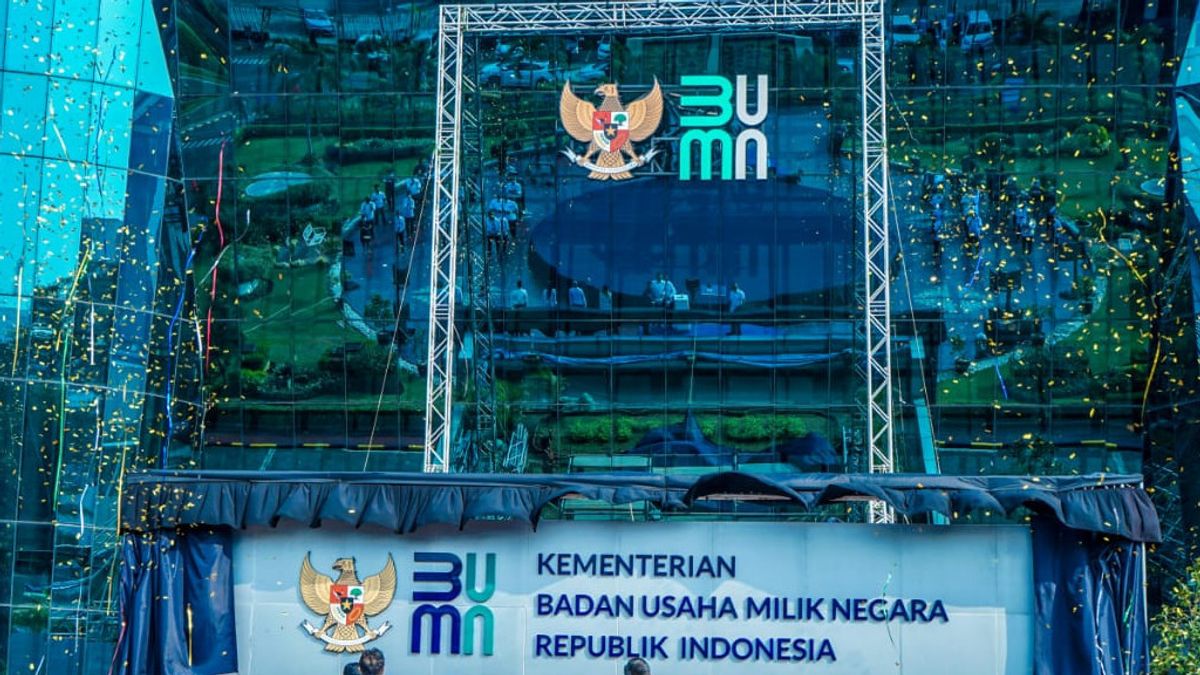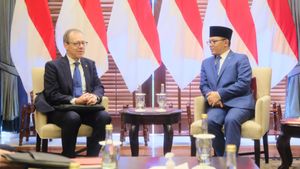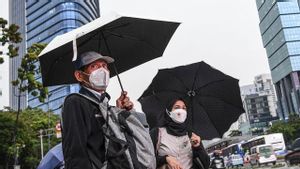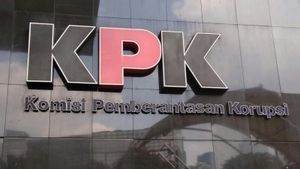JAKARTA - Member of Commission I DPR RI, Fadli Zon, said that State-Owned Enterprises (BUMN) are now facing serious risk of default along with the increase in foreign debt.
"I am worried, we are facing the same conditions today. One of them is related to the debt crisis and the risk of default on our BUMNs, "said Fadli as quoted from dpr.go.id, Friday, July 10.
Based on data from Bank Indonesia (BI), in the last five years the total foreign debt of all SOEs has continued to increase. As of April 2020, the foreign debt value of SOEs has reached US $ 55.3 billion, or the equivalent of Rp.775 trillion (exchange rate of Rp.14 thousand). In fact, in 2014, total BUMN debt was still at US $ 30.7 billion.
According to him, the COVID-19 pandemic has made the condition worse, the income of almost all BUMNs must be eroded, while the amount of debt due is not small. For the record, between May and December 2020, there were 13 BUMNs that had maturing bonds.
From that record, the biggest value was Bank Tabungan Negara (BTN), which was Rp. 5.4 trillion, followed by Pupuk Indonesia, valued at Rp. 4.1 trillion. If SOEs face the risk of default, Indonesia's economic recovery will be even more difficult.
"The most striking case is Garuda Indonesia. On June 3, they were supposed to pay the global sukuk debt of 500 million US dollars, but were forced to restructure it. COVID-19 has forced Garuda to park 70 percent of its fleet, even though revenue from passengers contributes 80 percent to the company's revenue. Imagine, how bloody the company is today? " he said.
The Gerindra Party politician sees a similar thing also happening to Karya BUMN, whose debt growth is far greater than their profits. Adhi Karya, for example, in 2019, its debt growth reached 20 percent, while its profits only increased by 3.1 percent. This means that the increase in debt is not balanced with the company's profit growth.
No wonder then that BUMNs are forced to sell their assets to cover their debts. Waskita Karya, for example, which has a debt of Rp. 89 trillion, will release four roads this year, namely the Becakayu Toll Road, the Kanci-Pejagan Toll Road and the Pejagan-Pemalang Toll Road. Meanwhile, the Cibitung-Tanjung Priok Toll Road will be sold by reducing share ownership from majority to minority.
"All that, once again, is due to mismanagement of government debt in the last five years. As I have reminded you since five years ago, infrastructure development carried out when the state was penniless was very dangerous. In the past, the New Order built infrastructure when we were enjoying a windfall." Oil Boom ". Likewise in the era of President Susilo Bambang Yudhoyono, infrastructure development was carried out when the Government enjoyed a 'boom' in commodity prices," explained Fadli.
"Now, President Joko Widodo wants to build a variety of physical infrastructure, most of which are consumptive infrastructure such as toll roads and airports, when the state has no income. Finally, our BUMNs are the victims. They are forced to build by seeking debt," continued the legislator. West Java V electoral district.
According to Fadli, this fact was also noted by the World Bank. In the “Infrastructure Sector Assessment Program” report (2018), the World Bank assesses that the trigger for an increase in BUMN debt is the work on Government projects. They are forced to work on Government projects that have no money. Because BUMNs also lack funds, they end up having to go into debt.
The English, Chinese, Japanese, Arabic, and French versions are automatically generated by the AI. So there may still be inaccuracies in translating, please always see Indonesian as our main language. (system supported by DigitalSiber.id)













